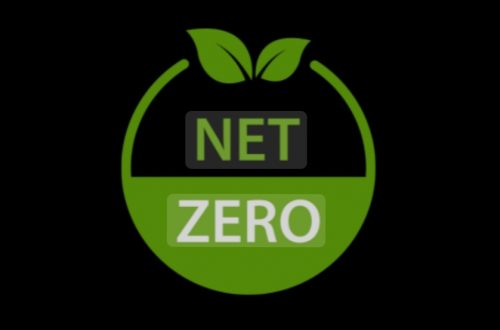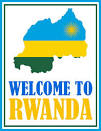This is a guest post by Chris Wright
In grateful recognition of the influence of Harry’s Place on my attempts to make sense of the world as a student and to engage with it as a student journalist, I felt that I should write an update of events from Durham University initiated by this website. Think of it as a case study in the relationship between British students and anti-Islamism.
Last December, I passed on information highlighted by David T to the readership of the Durham student paper, Palatinate. The news concerned the Islamic Republic of Iran’s sponsorship of a day of lectures entitled ‘Iranian theocracy and democracy: contradiction or convergence?’ (You can read the report, complete with David T quotation, here).
This clearly caused some anger within Durham’s Centre for Iranian Studies, though I have only experienced it second hand. It also induced a comment article in response, written by our Vice-Chancellor, Prof. Chris Higgins. Unfortunately, I can’t link to that article, but the basic message was that the university values ethnic diversity and controversial debate, and that there was nothing wrong with taking money from Iran. It also contained some rather unnecessary assertions about the value of free speech. I replied to him briefly in the subsequent edition.
In light of this experience, I was interested to read the latest publication from the Centre for Social Cohesion, which deals with the issue of funding from authoritarian governments.
I like the director of the CSC, Douglas Murray, who is an eloquent anti-Islamist and, even more importantly, shows signs that he is capable of changing his opinions (he recently renounced his Christianity, for instance). This is a rare talent in a polemicist, especially one who expresses himself with such force and shows admirable contempt for his opponents in public debate. Despite this, it should be admitted that CSC’s reports often seem to be written with fairly low standards in mind. The authors of ‘Islam on Campus’, for instance, seem to be under the impression that an online YouGov survey of 632 Muslim students can meaningfully “give cause for both hope and concern” – which I doubt. Still, better a low quality think tank working on this subject than no think tank at all.
This latest report includes a section on my university, criticising Durham’s relationship with the Sultan bin Mohammed al-Qasimi, the ruler of Sharjah. Specifically, in 1999 the university received £2.5 million to construct an Islamic Studies building, which looks like a leisure centre built out of an elaborate Ikea flat pack. In 2008, a further sum (the amount undisclosed) from al-Qasimi was donated to initiate a ‘Sharjah Chair’, focusing on Islamic finance.
Al-Qasimi was a PhD student at Durham and is now the unelected leader of Sharjah, an emirate of the UAE. The CSC report highlights Sharjah’s conservative laws, citing for instance the case of a woman who carried out an affair with a married man and his wife, which the report says earned her 120 lashes. If you look up the source (Gulf News), you will see that the woman actually won an appeal, and as such received 90 lashes and three months in jail. This is obviously harsh punishment for a private sexual matter. At the same time, it’s not exactly an Orwellian nightmare of state control and brutality. Can we really say that a university shouldn’t accept money from a country like Sharjah? Aren’t these absurdly high standards for cash-scrapped institutions?
The report quotes an official university response:
“The passages in this report regarding the Sharjah authorities contain many inaccuracies …
[those extra 30 lashes make all the difference!]
… which seem to have originated in unverified secondary sources like newspapers. For example, nothing of what the report alleges is human rights abuse or violations in the sense understood by the major human rights organisations.”
Two things worry me about this response. The first is its mangled English; the second is its terrible logic. The point made about human rights abuse is a good one, but clearly it does not constitute an example of inaccuracy seeming to have originated in an unverified secondary source.
What really interests me about this statement, however, is its implication that if Sharjah were a country of well documented human rights abuses then Durham would not accept the money. Yet the university has not denied that it has taken money from the Iranian government in the case of this academic forum. While not denying it, the Vice-Chancellor asserts that it is no big deal.
Well, perhaps there are other differences the university would appeal to in their defence. Presumably, there was much less money from Iran, and no strings attached? The problem is, we wouldn’t know: it’s a private matter. We are reassured (according to a statement in relation to the Al-Qasimi case) that:
“The University does not publish ‘agreements’ with any body, but whatever we agree with partners is subject to rigorous debate and scrutiny.”
If that’s true, and they are happy with their own level of moral scrutiny, why not come out and explain what kinds of donations are unacceptable? For whatever it’s worth, I think that if a foreign government is giving money to a university there should be a full disclosure of how much and how it is going to be used. I think it it is okay to take money from Iran or countries of similar human rights record, so long as the country in question buys no organisational influence. That last possibility is the reason why full transparency is imperative.
In other Durham University news, I can happily inform the readers of Harry’s Place that a few weeks ago a motion put to our student union (DSU) to boycott Israeli goods was defeated in a university wide referendum. More recently, a motion raising awareness of the fact that Baha’i are deprived of education in Iran was unanimously passed by the DSU’s council.
Hopefully, the university management will one day match up with this level of common sense.


